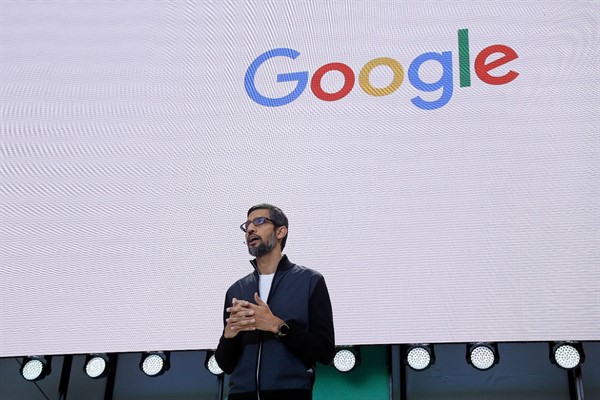It’s too early to say how the U.S. Department of Justice’s antitrust lawsuit filed against Google this week will ultimately play out. It will undoubtedly go down in history as the opening salvo in a grinding, yearslong war of attrition between government regulators and Silicon Valley. Yet, as extraordinary as the antitrust case against the search engine giant is, it may do little to answer one of the most urgent questions roiling the global economy today. Can capitalism and democracy survive the lie that a product is free when consumers are compelled to surrender their privacy rights, and sometimes even more than that, to the private sector?
At issue in the federal lawsuit is whether Google’s dominance in the search engine industry stems from restrictive contracts and outsized market share that give it an unfair leg up over its competitors. Filed in the U.S. District Court in Washington, D.C., and supported by 11 Republican state attorneys general from predominantly rural states, the Justice Department’s legal complaint cites Google’s multibillion dollar deals with Apple, LG, Motorola and Samsung, among others, to set Google as the default search engine for their laptops, tablets and mobile phones. “Google effectively owns or controls search distribution channels accounting for roughly 80 percent of the general search queries in the United States,” the opening paragraphs of the lawsuit notes. Largely as a result of Google’s “exclusionary agreements and anticompetitive conduct,” it adds, “Google in recent years has accounted for nearly 90 percent of all general-search-engine queries in the United States, and almost 95 percent of queries on mobile devices.”
In Google’s defense, Kent Walker, the company’s senior vice president for global affairs, called the federal government’s claims “dubious” and its case “deeply flawed.” Walker said that consumers and companies like Apple use Google as their default search engine not because it is the only product out there, but because it is “the best.” He likens Google’s premium placement on iPhones to the way that cereal companies pay supermarkets to place a box of Wheaties or Cheerios at eye-level where customers don’t have to strain to see it.

